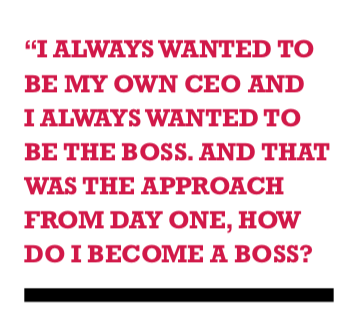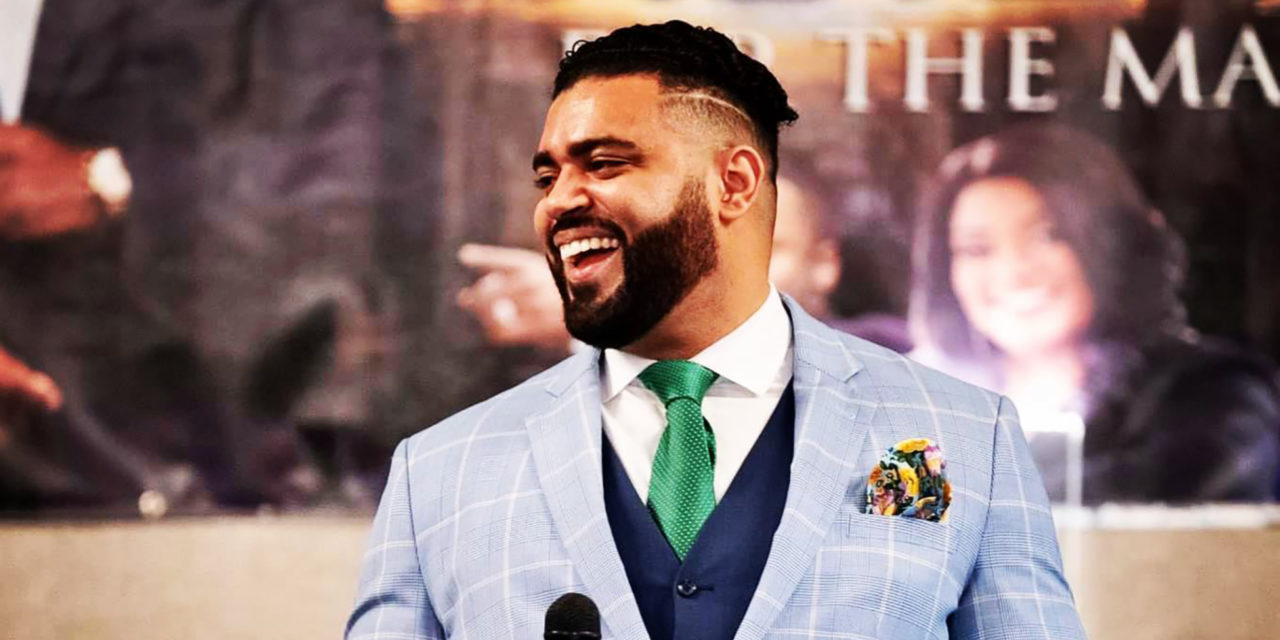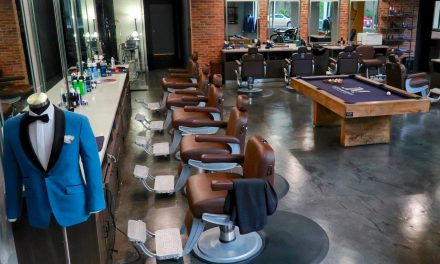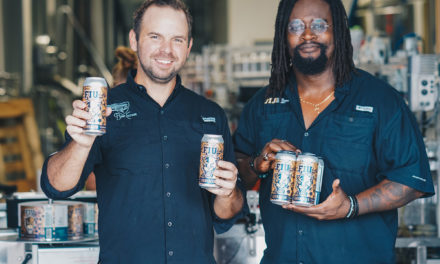Former football player Kristoffer Doura thrives after career ending injury
A day after the new year arrived, football fans across America were excited to see what was billed as a playoff preview featuring the Buffalo Bills visiting the Cincinnati Bengals on Monday Night Football. The January 2 game was so anticipated throughout the preceding week, there was a countdown clock on ESPN letting anxious fans know how many days, hours and minutes until kickoff.
But shortly after viewers settled in to watch this huge nationally televised game, 24-year-old Bills safety Damar Hamlin collapsed on the field seconds after making a tackle of Bengals wide receiver Tee Higgins.
The play, one that occurs on almost every football field in every game at every level, seemed to be routine. But suddenly, it became evident that Hamlin’s life was on the line. Fortunately, after being hospitalized in both Cincinnati and Buffalo, Hamlin was released nine days later.
Watching that night at his home in Coral Gables, FL, former pro football player Kristoffer Doura couldn’t help but immediately put himself in Hamlin’s place. Now a financial advisor at 1847Financial, he has become a Wall Street Journal best-selling author of the book, Let’s Get It! 10 Keys to Building Your Nonprofit to Maximum Impact, which released in November.
Doura, a former Miami Southridge Senior High football standout, experienced a similar near-death incident. While in training camp with the Pittsburgh Steelers in 2011, he initially passed out and collapsed on the field from dehydration but when he got to the hospital, a blood clot was discovered in his left leg. At 24 years old and alone with no family on hand, he had to decide between a dangerous surgery to remove the clot or amputation of his leg. He chose surgery but during the operation, he flatlined on the operating table. A defibrillator was used to revive him.
The scene from Cincinnati’s Paycor Stadium on Monday Night Football carried him back in time.
“You almost check out for a split second,” Doura said of his reaction to Hamlin’s situation. “It brought back memories, feelings and emotions and to know I went through something similar. It was like a tingle went down my spine to kind of have to relive that moment for a quick second and realize, that kid just went through something I went through and I hope he overcomes it and makes it out, because not many people do.
“I remember collapsing and being on the field and being rushed into the ambulance. Just seeing that, it’s a scary feeling. Your gut squeezes tighter and you get stiff and the tingle of a cold feeling… It happened 12 years ago but it’s still so fresh.
“The feelings are still fresh in your mind. It really impacts your whole body. You’ve got a cold feeling of death. It’s so weird to explain, but having that second chance at life and going through that experience, knowing that my heart got resuscitated, just talking about it, I get cold, it makes my body feel cold. But I’m touching my hands right now and I’m warm and I’m here, but imagining back 12 years ago, that’s what that kid went through. It’s a scary feeling, man.”
After rehabilitating and recovering from his incident – a process that took eight months and caused him to lose nearly 70 pounds, going from 350 to about 280 – Doura had a second chance. He pivoted to focus on his exit plan, one that was already in place long before he ever actually stepped on a football field.
“I didn’t envision getting hurt of course, but I definitely envisioned that I’d be somebody else outside of football. Any professional athlete has to have an end game and this is what I impress upon people. It’s a back-up plan. If this game of football doesn’t work out, what are the other things we can do as athletes?”
Doura was not your typical five-star recruit who had been spoon-fed and groomed for the game of football from a young age to become a pro, though he did eventually get a taste of life in training camps in both the NFL and CFL as an offensive lineman. In fact, as the third child of Haitian immigrants, he was actually more dialed into playing soccer.

“In my culture, we didn’t play American football. You kicked the soccer ball. It’s the global sport. Everything was so new and something I had to learn to adapt to. Being that I was athletic, I was able to do it to the best of my abilities but it fell short after that transition and I don’t regret it because I realized that along that process, the work ethic, the tenacity, the focus and that push through challenges really allowed me to become who I am today.”
In the fall of 2005, he was approached by the high school football coach, Stu Rogers, who told him with his size and athleticism, he had the chance to have some fun, make some friends and it might even help him go to college. Doura was looking for an opportunity to belong to something and with the inspiration from Rogers, played his one and only season of high school football at Southridge. From there, his impressive size – he was about 6-foot-5 at the time – and freak athleticism earned him some recognition and a chance to play at the next level.
Doura recognized this opportunity and saw football as a way for him to gain knowledge and capitalize on education, and he took full advantage. After graduating high school, he attended the University of Charleston (WV), where he received a scholarship to play football for the NCAA Division II Golden Eagles as a four-year letterwinner (2006-09). He wound up improving and gaining a better understanding and appreciation of the game. At the same time, he plowed through his coursework, getting his Bachelor of Science in Business Administration, Management and Operations in three years. A year later at Charleston, he added his MBA in Business Administration and Leadership. And now he’s in the midst of gaining another MBA from Charleston, this time in Management. He is also a licensed investment adviser, acquiring his credentials from the U.S. Securities and Exchange Commission.
“I’m so blessed that God gave me the opportunity to go to college at a very small university,” Doura said about his time at Charleston. “Going to Charleston, that was a blessing for me because I knew I had nothing else to do but 22 credit hours per semester. I played football and then on top of that, I had a job. I had no room to party every weekend, get super drunk, lose my face then try and figure things out and flunk out.”
At an early age, he was acutely aware of the value of education, had a desire to succeed and was focused on where he wanted to be later in life.
“In my younger days, I loved the movie Trading Places with Dan Akroyd and Eddie Murphy. It made me realize you have a choice in life. They switched places and come to find out when they did, Eddie Murphy’s character (Billy Ray Valentine) was more successful when he was around success. That always inspired me to want to get into the financial industry in some capacity and that was the reason I took business in college and got my masters.”
“I always said that if football didn’t work out for me, I wanted to be a businessman. So that was always kind of my roots of knowing I had an exit plan and believe it or not, when I got out of the hospital, that transition after rehab – it took about eight months to learn how to walk again because I was in a wheelchair, on crutches, you name it – I had to rebuild myself from scratch. And as I got stronger, I said, ‘I’m going to get into the financial services industry,’ and fast forward, seven years down into the journey, I became an investment advisor. I really love what I do.”
As he grew up watching the Duke brothers’ experiment and their $1 wager in Trading Places, he always had that desire for success, and he found that desire at an early age. He also was inspired by reading about the journeys of highly successful people like Warren Buffett and Oprah Winfrey.
“I always wanted to be my own CEO and I always wanted to be the boss. And that was the approach from Day One, how do I become a boss?

“I knew for a fact that I was on a time clock since the very beginning of my journey and I didn’t have room to mess that up. I guess because I was always a lone wolf, I didn’t want to be in my late 30s and 40s still trying to figure it out. I was around a lot of older people who I surrounded myself with and they didn’t figure it out. And I was like how come certain people I look up to, they’re not anywhere near where I need to be so I realized at an early age that I had to separate myself from them. That’s where I decided I’m going to be focused. I’m going to put the time in now because I know in my early 40s and the rest of my journey, I want to be free.”
By free, this massive, 6-foot, 7-inch man who is a “Big” for Big Brothers and Big Sisters of America and volunteers as a board member and chairman of Legacy Gifts for Families First Palm Beach County, means financial freedom.
He also credits his faith and his mother, Ninon, for keeping him on the right path. Plus, the close bonds within his family – his father Eddy and sisters Caroline and Christina – were an important part of his maturity at an early age that allowed him to have the laser focus to find the success he craved.
“Being able to know that I can support my family, support my community, make an impact in philanthropy. You have to have financial security to have that type of freedom. The only way for me to drive that financial security is that I have to put the time in now to build my wealth,” Doura says. “It takes such a concentration to say, what does that really mean? I want to be able to leave a legacy for my children and grandchildren. And to do that, I have to have wealth and how do I have wealth? I have to work, I have to build but to do it strategically so it can last, I have to be educated.”
And he hopes to not only continue to educate himself but also his clients, to inspire those he meets in his volunteer work or who may read his book, and continue to be a role model for his family as well as the South Florida community – a BIG role model.










